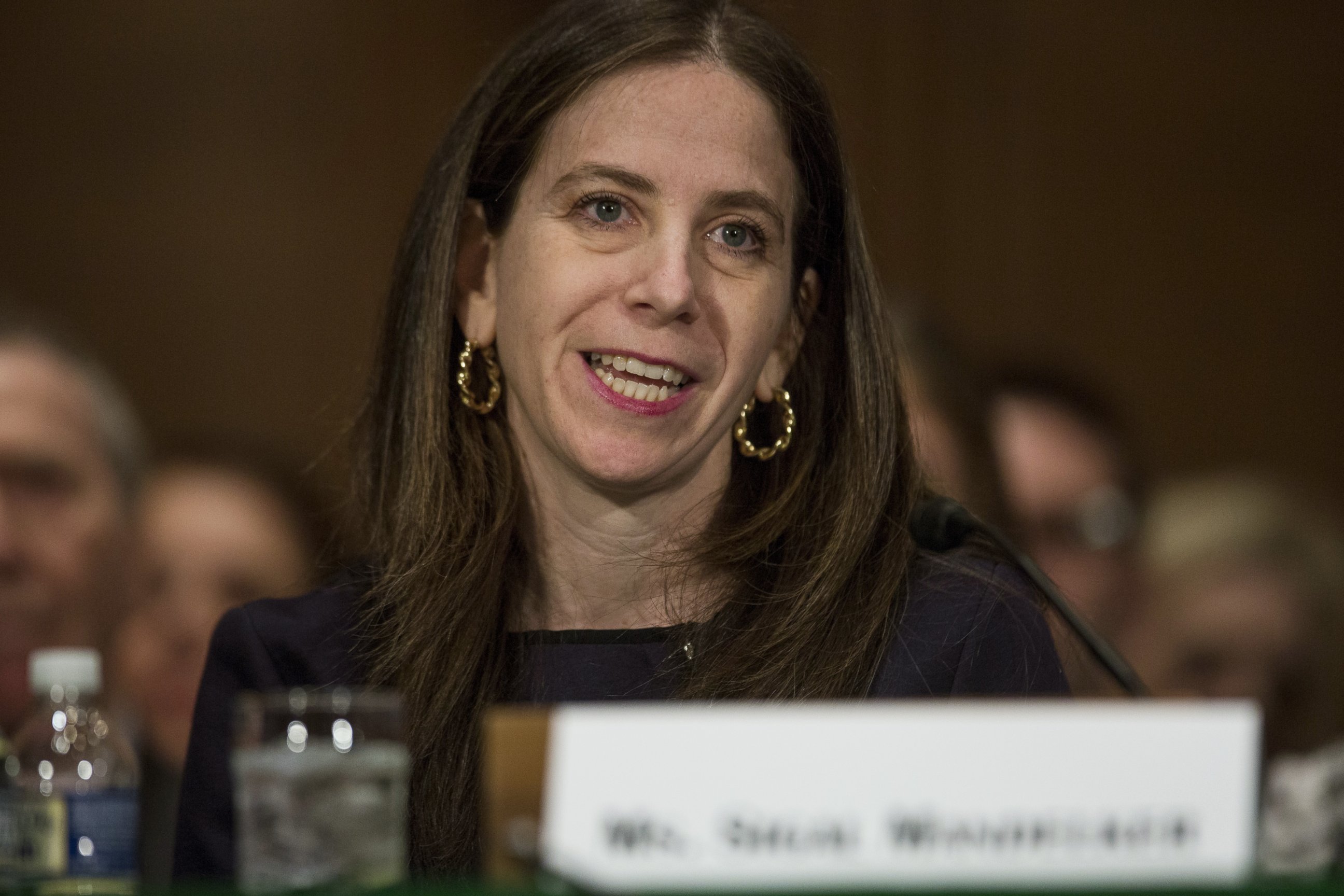Lawmakers intensify negotiations in pursuit of key Trump-related banking records
Senate investigators are locked in a quiet showdown with Trump officials.
— -- Senate investigators have been locked in a quiet showdown with the Trump administration over records that they believe could help expose possible hidden dealings between Trump campaign insiders and wealthy Russian or Eastern European business partners.
The stand-off over records from the Treasury Department’s financial intelligence section led Democratic Sen. Ron Wyden to hold up the nomination of President Trump’s pick for undersecretary of the treasury for terrorism and financial intelligence, New York attorney Sigal Mandelker, until investigators have access to the federal banking records, which detail suspicious financial transactions around the globe. A vote on her nomination is on the calendar for this week, suggesting the two sides are close to a deal.
“We’re in talks right now,” Wyden told ABC News on Monday. “I’m hopeful we’ll be able to get what we need.”
Senate investigators have been in talks with the Financial Crimes Enforcement Network, or FinCEN, since May over access to the banking records.
“I have stated repeatedly that we have to follow the money if we are going to get to the bottom of how Russia has attacked our democracy,” he said in May. “That means thoroughly review any information that relates to financial connections between Russia and President Trump and his associates, whether direct or laundered through hidden or illicit transactions. The office which Ms. Mandelker has been nominated to head is responsible for much of this information.”
A spokesman for FinCen declined to comment, citing a policy “to never confirm or deny or comment on any investigations.”
FinCEN, the Treasury agency responsible for tracking the illegal movement of money, maintains a database of millions of transactions that have been flagged by banks as unusual or problematic, known as suspicious activity reports, or SARs. Law enforcement agencies around the country have access to the information, but so far, congressional investigators have not had access.
“SARs have proven to be useful to criminal investigators in understanding financial relationships, identifying or confirming links between various parties, identifying patterns of illicit conduct and establishing new leads to be explored,” said Daniel Glaser, who served as undersecretary of the treasury for terrorism and financial intelligence in the Obama administration.

In addition to tracking bank transactions, FinCEN monitors the suspicious movement of money through real estate and casinos — two sectors that were prominent aspects of Trump’s business empire for many years. In February 2015, Trump Taj Mahal Associates agreed to pay a $10 million civil penalty to FinCEN and admitted to having willfully violated reporting and recordkeeping requirements under the federal Bank Secrecy Act from 2010 to 2012. Trump relinquished most of his interest in the casino in 2009, before it declared bankruptcy. The casino was hit with a civil penalty of $477,000 in 1998 for similar reporting violations that dated as far back as 1991, according to records obtained by ABC News through the Freedom of Information Act.
Senate investigators have been looking for financial ties linking top Trump campaign aides to Russian and Eastern European businessmen, in part to determine whether any of their dealings involved criminals or those subject to U.S. financial sanctions. One of several areas of interest, sources familiar with the investigation told ABC News, has been the pool of investors who helped finance construction of the Trump SoHo building in New York City. Several names associated with the financing effort have alleged ties to money laundering or Russian organized crime.
ABC News previously reported on the role in the Trump SoHo project of Felix Sater, a twice-convicted felon who served prison time and had documented Russian mafia connections. Trump Organization attorneys dismissed Sater’s role as minor and short-lived. Sater resurfaced earlier this year, however, at a meeting with Trump’s personal attorney, Michael Cohen, and a Ukrainian official, purportedly to discuss a Ukrainian peace proposal. Documents promoting the SoHo project identified one investor as Alexander Machkevich, a prominent Kazakh businessman who in 2011 was charged in Belgium with money laundering — a case that was eventually dropped. The Financial Times reported that the case was closed after Machkevich and two other defendants paid a fine, while making no admission of guilt.
Among the suspicious transactions tracked by FinCEN are filings from banks required anytime they engage in a transaction involving more than $10,000 in cash. Many millions of these reports are filed each year. “As illicit financial activity is often conducted in cash, [the reports] are a valuable source of leads for criminal investigators,” Glaser said.
“SARs and CTRs [currency transaction reports] have proven highly useful to criminal investigators,” Glaser said. “They are not, however, a magic bullet.”
During a recent hearing, Sen. Mark Warner of Virginia, the ranking Democrat on the Intelligence Committee, ripped officials for taking too long to comply with the request.
“We’ve received a preliminary response from Treasury that they’re — quote, unquote — working on it,” he said. “Well, I’ve got to tell you, that’s not good enough.”




